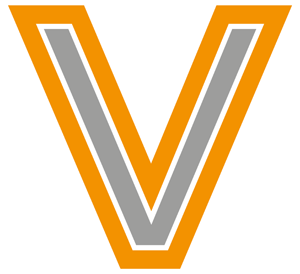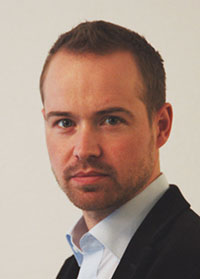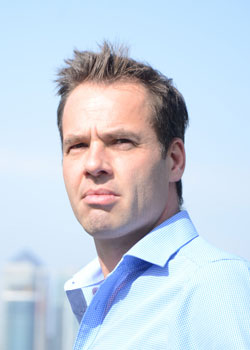
18.06.2024 - 20.06.2024, Grenoble
25.06.2024 - 27.06.2024, Toulouse
02.10.2024 - 04.10.2024, Ankara
02.10.2024 - 04.10.2024, Munich
21.10.2024 - 23.10.2024, Zurich
The Systems Engineering foundations course provides a solid background of the core Systems Engineering discipline. Including learning and practicing the application of Systems Engineering methodologies, enhancing know-how with an interactive workshop, as well as individual and group exercises covering detailed use cases.
The course is intended for people working in engineering, across a diverse spectrum of roles and industries, with at least 18 months experience in their engineering field.
The course attendance is strictly limited to a ratio of no greater than 8:1 Participants: Presenters, thus enhancing the effectiveness of the training. Given that Systems Engineering needs to be tailored to each Participant's unique needs, increasing the Presenter's availability per Participant, is a key quality measure of this training course.
The course can be attended exclusively at a Customer's site or in one of our regular external course venues, where there's a healthy mixture of engineers from different backgrounds.
In addition, an evening meal with the course presenters is included in the course fees.
• To know the origins of Systems Engineering
• To know the role, responsibilities and skills of a Systems Engineer
• To know the terms and definitions in accordance with ISO 15288 and the Systems Engineering Handbook
• To know how to apply Systems Engineering methodologies to complex project developments
• To conduct functional analysis for architecture optimisation
• To plan milestones with their corresponding baseline designation and control gate criterions
• To conduct a technical project risk analysis
• To define appropriate and cost-efficient Verification & Validation activities
• To know key document templates such as the Systems Engineering Management Plan
• To assess the scope of applying for Systems Engineering professional accreditation, ASEP or CSEP.
This workshop is intended for:
• Requirements Engineers
• Systems Engineers
• Project Managers
• Verification Engineers
• Architects, Development Engineers
• Product Owners.
Normal price 2,700 CHF / EUR; Early Bird discount 2,430 CHF / EUR
3 days

Sebastian has authored and reviewed numerous publications and likes to implement systems engineering principles.
After working at the Institute of Transport Science of RWTH Aachen as research associate, he worked at the German Aerospace Centre as Project Officer and as Project Systems Engineer at Bombardier.
Currently, Sebastian is heading the RAMS department at Siemens' Mobility division. He is actively involved in the committee of the Swiss Society of Systems Engineering, is a certified Systems engineering professional and is giving systems engineering training at Siemens.
Sebastian enjoys approaching organisational and technical challenges with a 'rock solid' systems thinking approach.



Mike has worked leading challenging product development roles predominantly in the Space and Defence Industries since completing his Masters degree in Photonics and Optoelectronic devices at the University of St Andrews, UK.
He has worked predominantly in the roles of Systems Engineer, leading technical developments involving inter-disciplinary teams often consisting of Mechanical, Electrical, Technology, Software and Optical Engineers. He worked at RUAG Space, Zürich for five years. During this period he moved into management, leading the Systems Engineering group in the product unit Optoelectronics and Instruments. In addition he gave Systems Engineering training courses to the employees across the whole company, training circa 100 Engineers from a beginners to an advanced level.
Having moved to Roche Diagnostics International to lead the Systems Engineering team in Rotkreuz, Switzerland, he is now passionately applying his experience and knowledge of Systems Engineering to the Healthcare industry.
He is passionate about product development and especially the application of Systems Engineering. He is one of the founders of the Swiss Society of Systems Engineering (SSSE) and regularly attends Swiss based IET and INCOSE lectures/seminars. He is the organiser of SWISSED, Switzerland's annual conference on Systems Engineering. In addition, he is the co-founder of SE-Training GmbH, specialising in high quality delivery of Systems Engineering training courses in Switzerland.
Chartered Engineer (IET 97325920) and Chartered Systems Engineering Professional (CSEP).


Marco has had many roles in Systems Engineering: Professor at a technical university, and Consultant for and Employee in the development of complex systems. He was the managing director of projectglobe - a boutique consultancy firm specialising in Model Based Systems Engineering (MBSE) and Information Management (IM) to support innovation driven engineering projects. Major customers are the fusion research community, the automotive industry, and 3D laser-welding and robotics companies.
Marco holds a PhD in nuclear engineering and a Masters in Operational Research. In his role as research fellow at Europe's largest fusion laboratory, JET near Oxford, he devised a novel diagnostic system, which earned him a world-wide patent. Marco then worked for the automotive industry managing product development and launch projects for the emerging markets of Eastern Europe and Russia before co-founding projectglobe with the purpose to devise novel methodologies, frameworks and tools that combine MBSE with IM to enable effective innovation and product development.
Together with partners from industry and academia, projectglobe have developed CLOSE - a Closed-Loop MBSE methodology based on robust semantic reference model. This model allows to automatically generate the required engineering artefacts in the correct format for SE teams and domain experts alike. The loop is closed by so-called "Experimentable" Digital Twins that provide in-the-loop feedback for all developers throughout the whole product life cycle. CLOSE runs on projectglobe's fractal data engine and thus allows for unlimited scalability in managing all project information.


